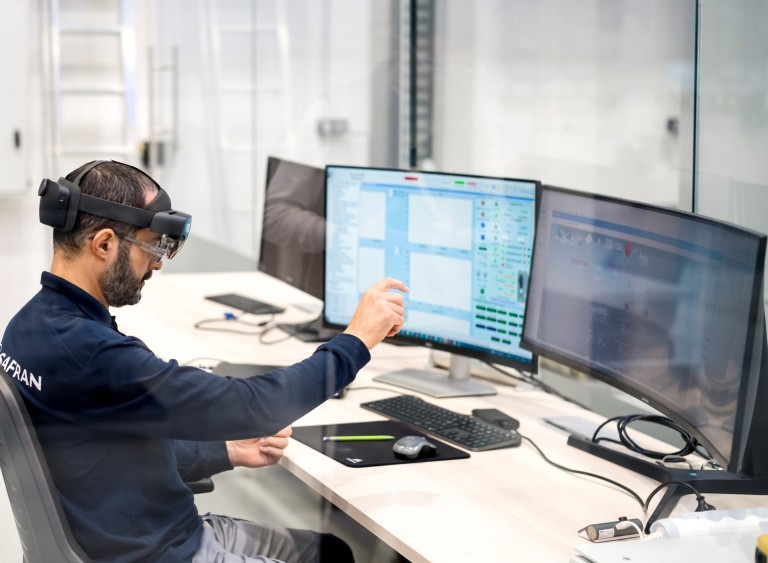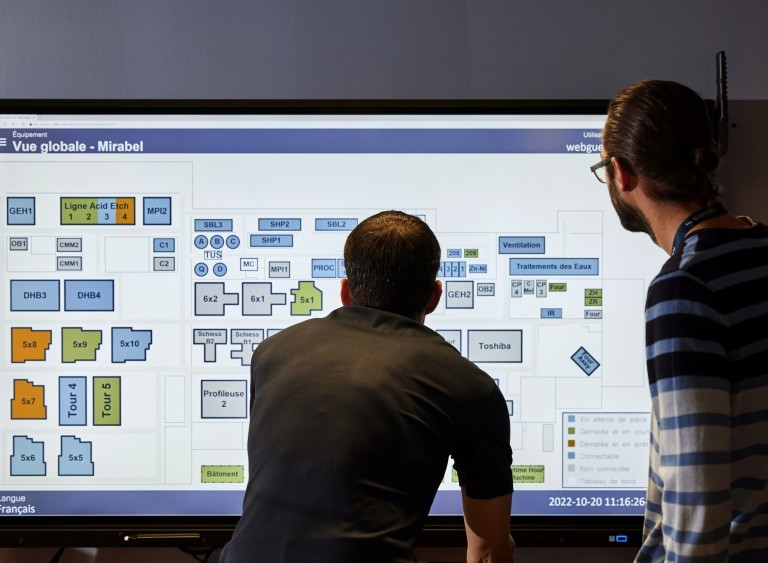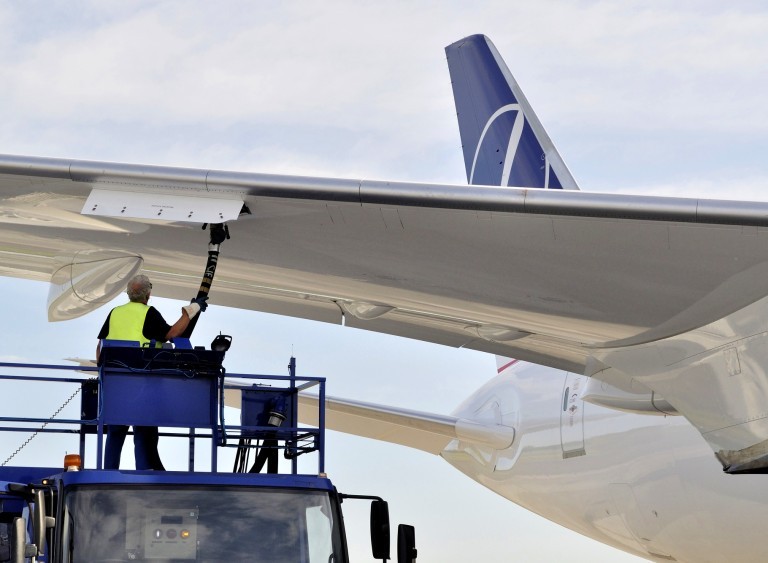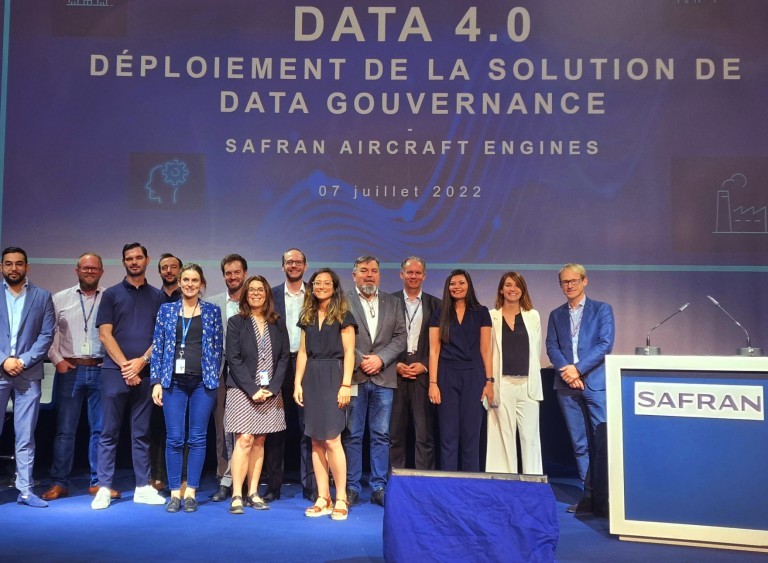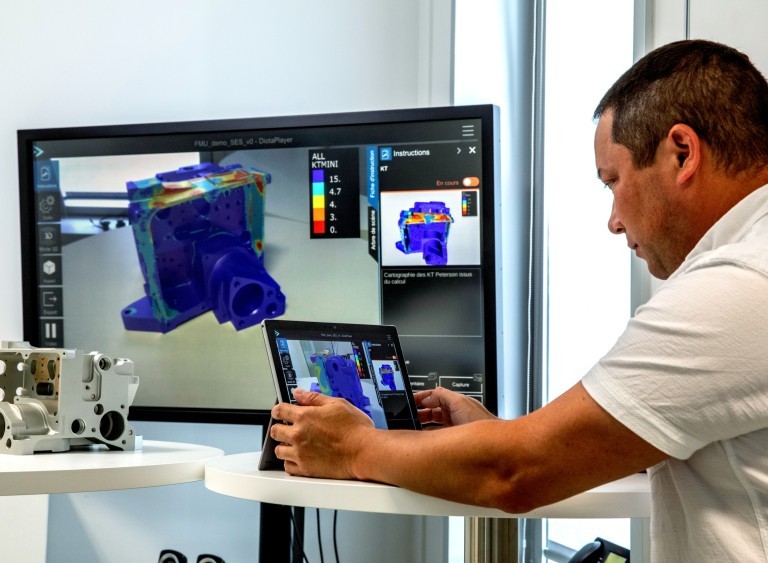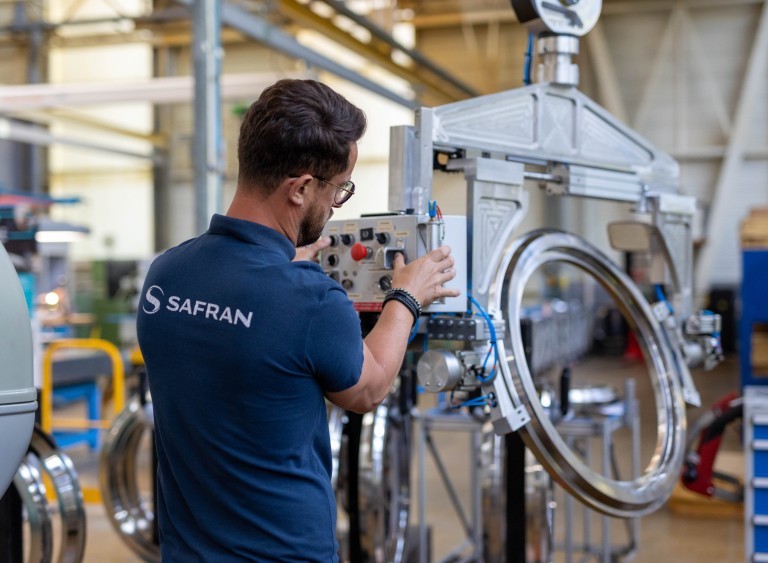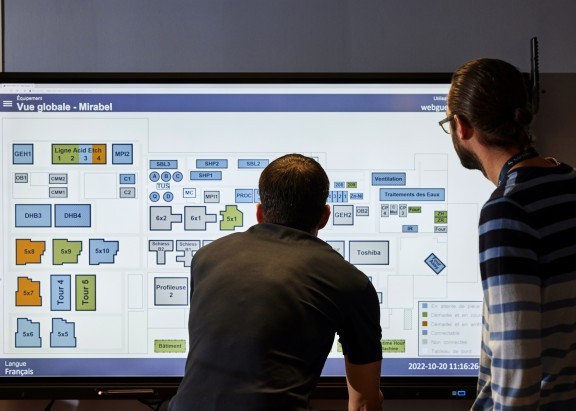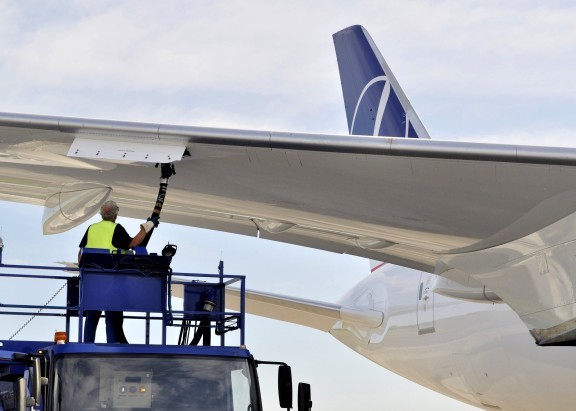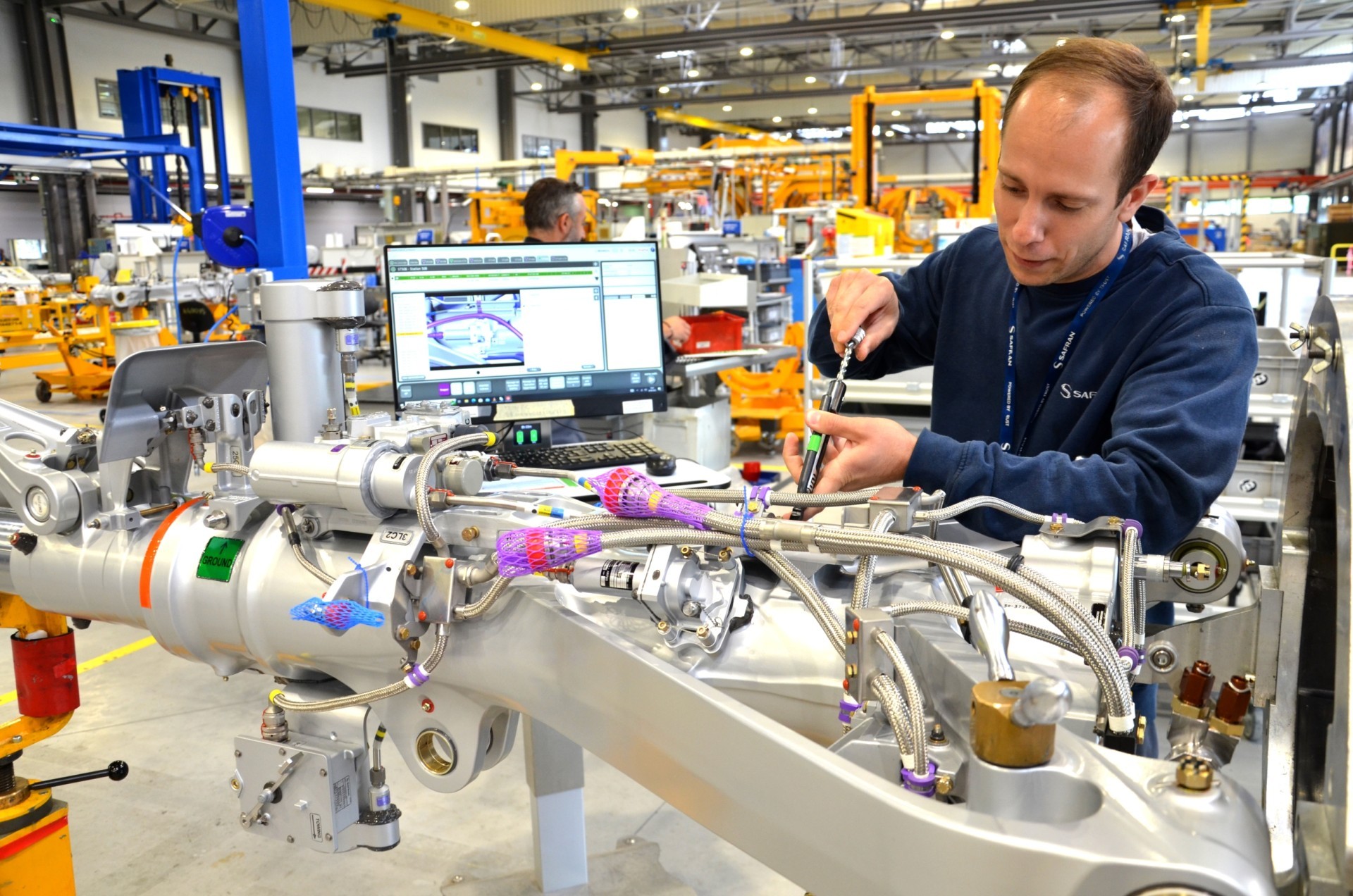
MES: optimized, paperless production thanks to digital solutions
At each Safran Landing Systems facility, digital transformation includes going paperless for instructions issued to operators on production lines. At the forefront of this revolution, the Bidos site is pursuing a roadmap with a goal of “zero paper” by the end of 2023.
- Perspective
- At a glance
- Discovery
The Bidos site, which specializes in the manufacture of large parts and the assembly of landing gear for nearly 20 different aircraft types, began its shift to paperless in 2019. It was part of a large-scale digitization project that had just been launched at Safran Landing Systems: introduction of manufacturing execution system (MES) software. The objective is to move into the Industry 4.0 era by rolling out a company-wide production management system with capture and analysis of operator and machine data.
A FIRST DECISIVE STEP
Interfaced with the main in-house applications — ERP, PLM as Planned(1), Quality, etc. — the MES system is the cornerstone of optimized production supervision. It paves the way for a diverse range of applications, from digitization of work procedures to preventive maintenance of machinery and traceability management for parts and production data. As well as its impact in terms of management, the MES system addresses another challenge, namely digital continuity, or the ability to access the right data at the right place and time. As a result, everyone will have reliable access from a single system to configuration information about each product throughout its entire lifecycle, right from the design phase.
Safran Landing Systems has chosen an MES solution called ShopVu, which is one of the two solutions shortlisted by the Group with APRIS. To date, it has been introduced in Gloucester, Montreal and Toronto, and is currently being rolled out in Quéretaro. At Bidos, it was first implemented in a pilot configuration on the A320 landing gear assembly line, then in all workshops. But this was only the start, as Philippe Chuburu, MES/Paperless project manager, explains: “The next logical step was to move to paperless, which Bidos committed to as soon as the MES system was introduced. With this new tool, we now have the software layer we need to reach this goal. The MES system lets us display work instructions and technical datasheets in a digital format and also capture and capitalize on data — tasks our operators previously had to perform on paper.”
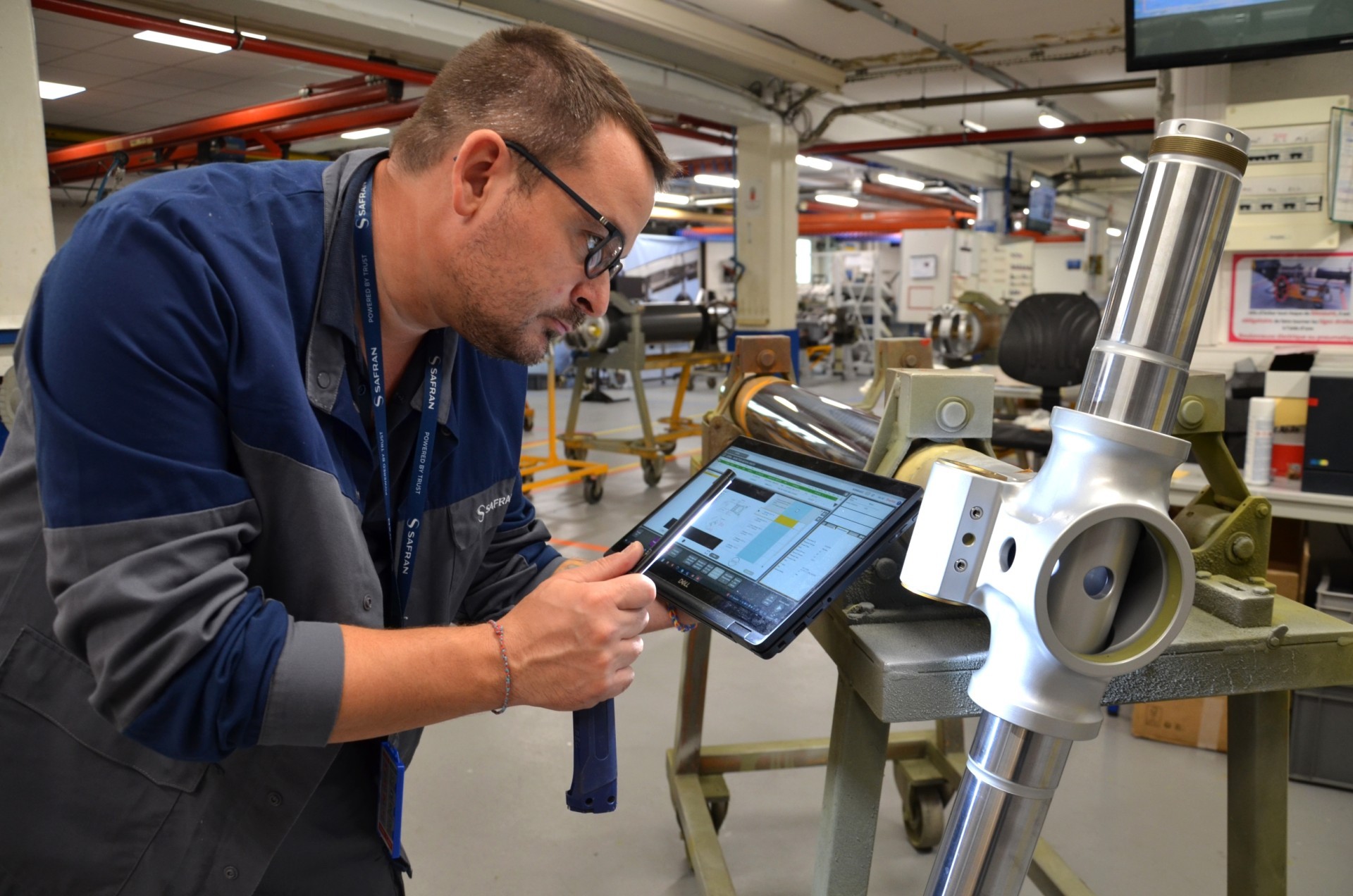
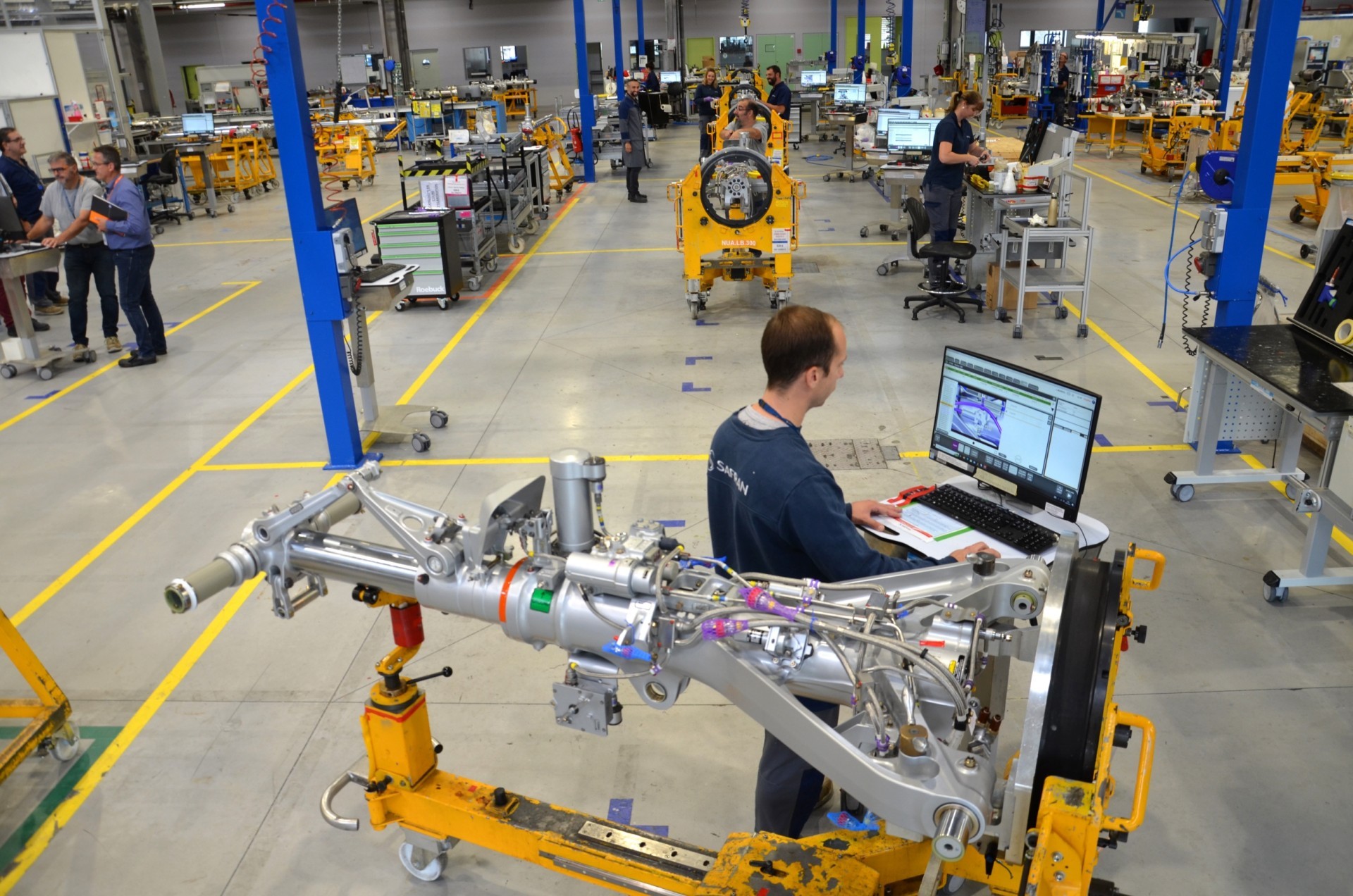
THE PAPERLESS REVOLUTION ON THE MOVE
After a major overhaul and harmonization of processes, which was necessary to maximize the gains, the sequences for the A320 rods and nose gear assembly and manufacture were switched to paperless. The other workshops will gradually go digital as well, with a target of being an entirely paper-free site by the end of 2023. In the meantime, MES/paperless projects are already delivering benefits. For operators, it’s the assurance of having accurate and up-to-date instructions for each product from a single interface. The added value on the management side is improved production and parts monitoring as well as better planning.
In short, MES is a vital tool for streamlining operations, making production faster and more reliable, improving quality, lowering costs, shortening delivery lead times and making life easier for operators.
(1) PLM As Planned : product lifecycle management, a system that lets us create and manage production and assembly procedures.
Learn more about Manufacturing 4.0 at Safran
Read the article





